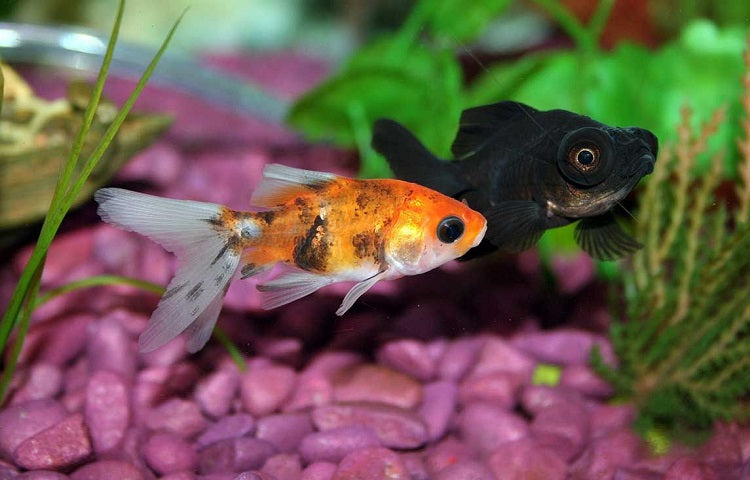
Wintertime Fish Tank Upkeep
As the temperatures drop and winter sets in, it's important for aquarium enthusiasts to pay special attention to their fish tanks. Wintertime fish tank upkeep becomes crucial to ensure the well-being of your aquatic pets. In this article, we will discuss the key aspects of maintaining a thriving fish tank during the colder months.
- Temperature Control:
Maintaining a stable water temperature is paramount during the winter. Sudden temperature fluctuations can stress your fish and even be fatal. Consider using a reliable aquarium heater to keep the water at the optimal temperature for your fish species. It's also a good idea to place a thermometer in the tank to monitor the water temperature regularly.
- Lighting Adjustments:
With shorter daylight hours in winter, you may need to adjust your aquarium lighting schedule. Most fish benefit from a consistent light cycle, so invest in a timer to mimic natural daylight patterns. This will help your fish maintain their regular behaviors and routines.
- Water Quality:
Winter air tends to be drier, which can lead to increased evaporation in your fish tank. Keep a close eye on water levels and top off with dechlorinated water as needed. Regular water testing is essential to ensure that ammonia, nitrite, and nitrate levels remain within safe ranges. Perform water changes if necessary to maintain water quality.
- Fish Feeding:
Fish tend to have slower metabolisms in colder water, so adjust their feeding schedule accordingly. Overfeeding can lead to water quality issues. Offer smaller, more frequent meals to prevent excess food from accumulating at the bottom of the tank. Also, be mindful of any changes in your fish's appetite, as it can be a sign of underlying health issues.
- Algae Control:
Algae growth can become more prominent in winter due to reduced light and temperature fluctuations. Regularly clean the glass and decorations in your tank to prevent algae buildup. Consider adjusting the lighting duration to help control algae growth.
- Insulation:
To prevent rapid temperature drops in your aquarium, insulate the tank by placing it away from drafty windows or doors. You can also use aquarium insulation kits to add an extra layer of protection.
- Emergency Preparedness:
Have a backup plan in case of power outages, which are more common during winter storms. Battery-powered air pumps and heaters can be a lifesaver for your fish during such situations.
- Monitoring Health:
Lastly, closely observe your fish for any signs of illness or stress. Quarantine any sick fish promptly to prevent the spread of disease. Maintain a well-stocked aquarium first-aid kit and consult with a knowledgeable fish veterinarian if needed.
Do fish feel cold in winter in aquarium?
In conclusion, wintertime fish tank upkeep is essential to ensure the health and happiness of your aquatic companions. By carefully monitoring temperature, water quality, lighting, and other factors, you can create a stable and comfortable environment for your fish even during the coldest months of the year. Remember, a well-maintained aquarium is a joy to behold, no matter the season. With the help of Intan Aquarium Feeds your fish will be fed properly during winters!
At Intan, we are here to provide you with premium fish feed. Our feed is tailored to meet the specific needs of each species. We truly believe every feed can spark positive change and create a future promoting quality, resilience, and well-being. We aim to serve the needs of hobbyists and breeders for the best quality of each species’ unique requirements. To know more about us, check out our Instagram page or your can find us at our nearest outspot.
We are not just a brand; we are stewards of the underwater world. We believe in the well-being of our finned friends and their mental health. Understanding and addressing the stressors that affect fish is not just a concept for us, it's a commitment. Through our dedication to research and innovative products, we aim to ensure that fish everywhere can lead happier, healthier lives.
